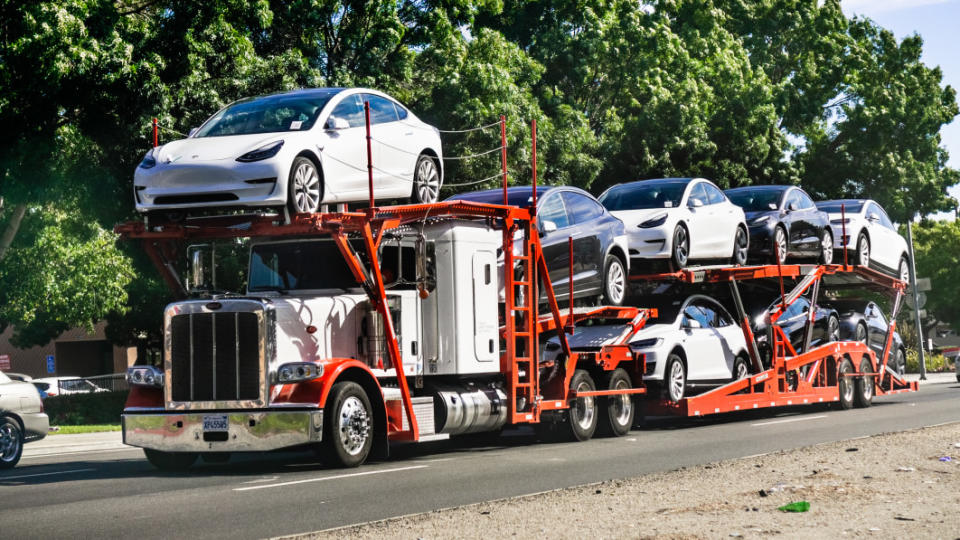Tesla price cuts padded by $1.8 billion windfall from Biden’s IRA

Elon Musk is getting more firepower for his electric-vehicle price war thanks to President Joe Biden’s signature climate legislation.
Tesla and its battery partner are poised to receive about $1.8 billion in production tax credits this year under the Inflation Reduction Act, according to forecasts from researcher Benchmark Mineral Intelligence – a windfall that far exceeds an estimated $480 million haul for General Motors and LG Energy Solution. Another rival, Ford, won’t begin to reap any benefits from the law’s battery manufacturing credits until 2025.
The disparity reflects the design of the law, which gives hefty incentives to battery suppliers and automakers that produce in the US, and, crucially, rewards scale: The more batteries and EVs a company makes stateside, the more money it gets via tax credits.
And Tesla – which broke ground nearly a decade ago on a Nevada battery plant it operates with Panasonic – is far ahead of the legacy automakers in churning out products eligible for the largesse.
“We’re pretty well-positioned over the coming years to take advantage of this,” Zachary Kirkhorn, Tesla’s CFO, told investors in January.
Tesla has said it expects to use the money from the credit to keep slashing prices for consumers, part of a strategy to sacrifice short-term profit margins to boost sales volumes against a backdrop of inflation and greater competition. Musk’s pricing crusade creates pressure for incumbent automakers like GM and Ford to follow suit, adding to the extraordinary profitability challenges the old guard already faces in electrifying their lineups.
Tesla’s average selling price could fall by $125 a unit every quarter for the next two years, without impacting margins, because of the production tax credits, estimates Piper Sandler analyst Alexander Potter.
Even Musk has nodded at the law’s enormous potential reward. In a recent interview with CNBC, he called the credits “helpful” and said the IRA was a “very well-written” bill.
The outsize benefit Tesla reaps from the law makes for an inconvenient political reality for Musk: His company has gained an advantage from the key policy achievement of a president he has derided as a “damp sock puppet.”
First-mover advantage
In the immediate wake of the IRA’s passage, the industry and analysts focused largely on how the law’s EV tax credits for consumers might reshape the market. Now, it’s sinking in that the production credits are the real prize — especially for Tesla, given that it already has commanding share of the market.
The incentives — which cover many aspects of the EV supply chain, from mining and processing raw materials like lithium to making batteries in the U.S. — allow Tesla to build on its first-mover advantage. In addition to the battery factory near Reno that it jointly operates with Panasonic, Tesla is ramping production of its own battery plant in Austin and broke ground on a lithium refinery in Corpus Christi, Texas, in early May.
GM and Ford, meanwhile, are making massive investments to produce batteries in the U.S., but it will take years for their domestic output to match Tesla’s. GM’s battery joint venture with LG in Ohio has already started making batteries, and it has two other plants with LG in Tennessee and Michigan that will come online in 2024 and 2025, respectively. It’s also planning a new U.S. plant with Samsung SDI.
Ford and its battery joint-venture partner SK Innovation are setting up three battery plants across Tennessee and Kentucky, and the company will own 100% of a Michigan battery plant that licenses technology from China’s Contemporary Amperex Technology Co., but production will not begin until 2026.

 Yahoo Autos
Yahoo Autos 
